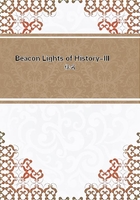
第79章
When any city fell into their hands there was wholesale assassination. And they became licentious, as well as rapacious and cruel. They learned all the vices of the East. Even under the walls of Acre they sang to the sounds of Arabian instruments, and danced amid indecent songs. When they took Constantinople they had no respect for either churches or tombs, and desecrated even the pulpit of the Patriarch. Their original religious zeal was finally lost sight of entirely in their military license. They became more hateful to the orthodox Greeks than to the infidel Saracens. And when the crusaders returned to their homes,--what few of them lived to return,--they morally poisoned the communities and villages in which they dwelt. They became vagabonds and vagrants; they introduced demoralizing amusements, and jugglers and strolling players appeared for the first time in Europe. All war is necessarily demoralizing, even war in defence of glorious principles, and especially in these times; but much more so is unjust, fanatical, and unnecessary war.
But I turn from the record of the mistakes, follies, vices, miseries, and crimes which marked the wickedest and most uncalled-for wars of European history, to consider their ultimate results:
not logical results, for these were melancholy,--the depopulation of Europe; the decimation of the nobility; the poverty which enormous drains of money from their natural channels produced; the spread of vice; the decline of even feudal virtues. These evils and others followed naturally and inevitably from those distant wars. The immediate effects of all war are evil and melancholy.
Murder, pillage, profanity, drunkenness, extravagance, public distress, bitter sorrows, wasted energies, destruction of property, national debts, exaltation of military maxims, general looseness of life, distaste for regular pursuits,--these are the first-fruits of war, offensive and defensive, and as inevitable and uniform as the laws of gravity. No wars were ever more disastrous than the Crusades in their immediate effects, in any way they may be viewed.
It is all one dark view of disappointment, sorrow, wretchedness, and sin. There were no bright spots; no gains, only calamities.
Nothing consoled Europe for the loss of five millions of her most able-bodied men,--no increase of territory, no establishment of rights, no glory, even; nothing but disgrace and ruin, as in that maddest of all modern expeditions, the invasion of Russia by Napoleon.
But after the lapse of nearly seven hundred years we can see important results on the civilization of Europe, indirectly effected,--not intended, nor designed, nor dreamed of; which results we consider beneficent, and so beneficent that the world is probably better for those horrid wars. It was fortunate to humanity at large that they occurred, although so unfortunate to Europe at the time. In the end, Europe was a gainer by them.
Wickedness was not the seed of virtue, but wickedness was overruled. Woe to them by whom offences come, but it must need be that offences come. Men in their depravity will commit crimes, and those crimes are punished; but even these are made to praise a Power superior to that of devils, as benevolent as it is omnipotent,--in which fact I see the utter hopelessness of earth without a superintending and controlling Deity.
One important result of the Crusades was the barrier they erected to the conquests of the Mohammedans in Europe. It is true that the wave of Saracenic invasion had been arrested by Charles Martel four or five hundred years before; but in the mean time a new Mohammedan power sprang up, of greater vigor, of equal ferocity, and of a more stubborn fanaticism. This was that of the Turks, who had their eye on Constantinople and all Eastern Europe. And Europe might have submitted to their domination, had they instead of the Latins taken Constantinople. The conquest of that city was averted several hundred years; and when at last it fell into Turkish hands.
Christendom was strong enough to resist the Turkish armies. We must remember that the Turks were a great power, even in the times of Peter the Great, and would have taken Vienna but for John Sobieski. But when Urban II., at the Council of Clermont, urged the nations of Europe to repel the infidels on the confines of Asia, rather than wait for them in the heart of Europe, the Asiatic provinces of the Greek Empire were overrun both by Turks and Saracens. They held Syria, Armenia, Asia Minor, Africa. Spain, and the Balearic Islands. Had not Godfrey come to the assistance of a division of the Christian army, when it was surrounded by two hundred thousand Turks at the battle of Dorylaeum, the Christians would have been utterly overwhelmed, and the Turks would have pressed to the Hellespont. But they were beaten back into Syria, and, for a time, as far as the line of the Euphrates. But for that timely repulse, the battles of Belgrade and Lepanto might not have been fought in subsequent ages. It would have been an overwhelming calamity had the Turks invaded Europe in the twelfth century. The loss of five millions on the plains of Asia would have been nothing in comparison to an invasion of Europe by the Mohammedans,--whether Saracens or Turks. It may be that the chivalry of Europe would have successfully repelled an invasion, as the Saracens repelled the Christians, on their soil. It may be that Asia could not have conquered Europe any easier than Europe could conquer Asia.